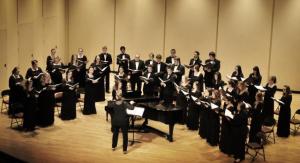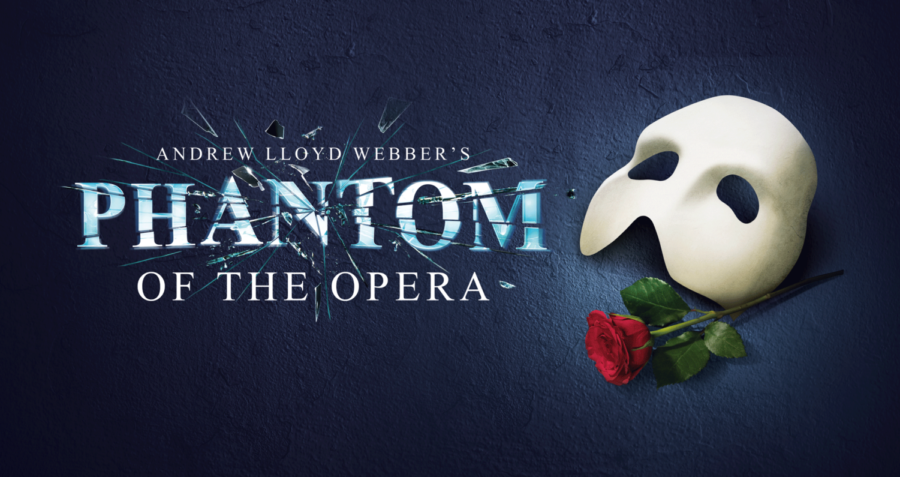 Tyler Stauffer Photo: The Mercyhurst Concert Choir, conducted by Rebecca Ryan, gave a stunning performance including multiple repertoire pieces in Latin and a wonderful rendition of Pachelbel’s Magnificat in G.
Tyler Stauffer Photo: The Mercyhurst Concert Choir, conducted by Rebecca Ryan, gave a stunning performance including multiple repertoire pieces in Latin and a wonderful rendition of Pachelbel’s Magnificat in G.
Last Sunday the Mercyhurst Concert Choir gave a stunning hour-long performance in the Walker Recital Hall, mixing mostly early works with those of more modern interpretations of early works.
The pieces were performed in either English or Latin, with all of the music presenting heavy ties to the Church. The group was conducted by choral director Rebecca Ryan for the majority of the performance, but gave sophomores Ian Gayford and Andrija Andjelic an opportunity to conduct two of the pieces, respectively.
Also involved in the performance was piano and a small string ensemble, with a guest appearance from a snare drum for one of the more modern pieces that was performed.
The concert started out with an old work by a modern composer. “Ubi Caritas” is based off of ancient texts and follows in the style and tradition of early written music, but was composed by Ola Gjeilo only 11 years ago in 2001.
Nicely contrasting the modern work were four traditional works all in Latin and presented in the early style by the choir. This involves phrasing sentences and melodic ideas differently than we would in today’s music.
For instance, on every dotted note, the choir would give a little jolt or “lift off” the note. The next two presentations were both in Latin, the “Agnus Dei” and “Exultate Justi in Domino,” and although both are variations on classic texts of the church, the styles of the pieces differ greatly. “Agnus Dei” by Thomas Morley is incredibly legato and has a soothing quality; where as “Exultate Justi in Domino” by Viadana is full of energy and passion.
Following of two contrasting pieces, the choir then performed two separate pieces by J.S. Bach. The first was a very traditional selection by the title of “Sicut Locutus est.” The piece had lots of energy and syncopation incorporated in the melody. The second piece was a break from the status quo of the choirs’ regular repertoire. “Sleepy Time Bach” is a choral spin on an instrumental piece consisting of no words; rather, it requires the vocalists singing “doo-be-doo.”
It was definitely a fun, silly diversion from the concert that was mostly done in Latin. The focal point of the entire concert was an enormous piece written by Pachelbel– and no, it isn’t his cannon. Pachelbel’s “Magnificat in G” is a massive work written with exciting harmonies, melodic patterns and booming choruses that do an incredibly great job of keeping the listener entertained and interested in the music.
After the “Magnificat,” the choir performed a haunting work with an even more haunting title. “Domine, ad adjuvandum me festina” translates into “Lord, make haste to help me,” and Martini makes that quite obvious in his music. The entire concert was stunning, especially with the short amount of time given to learn the music. The audience was captivated by the music the entire time.






